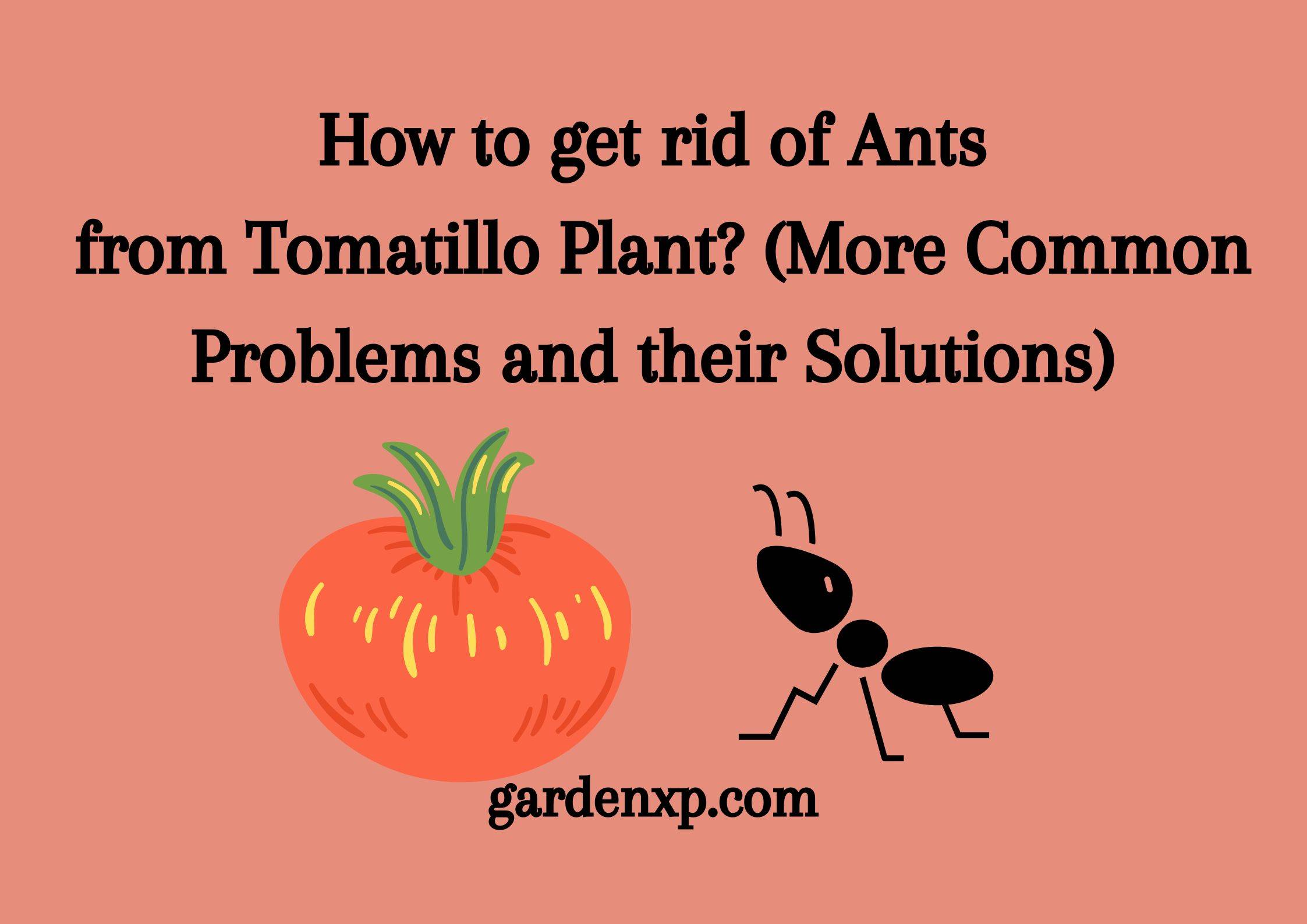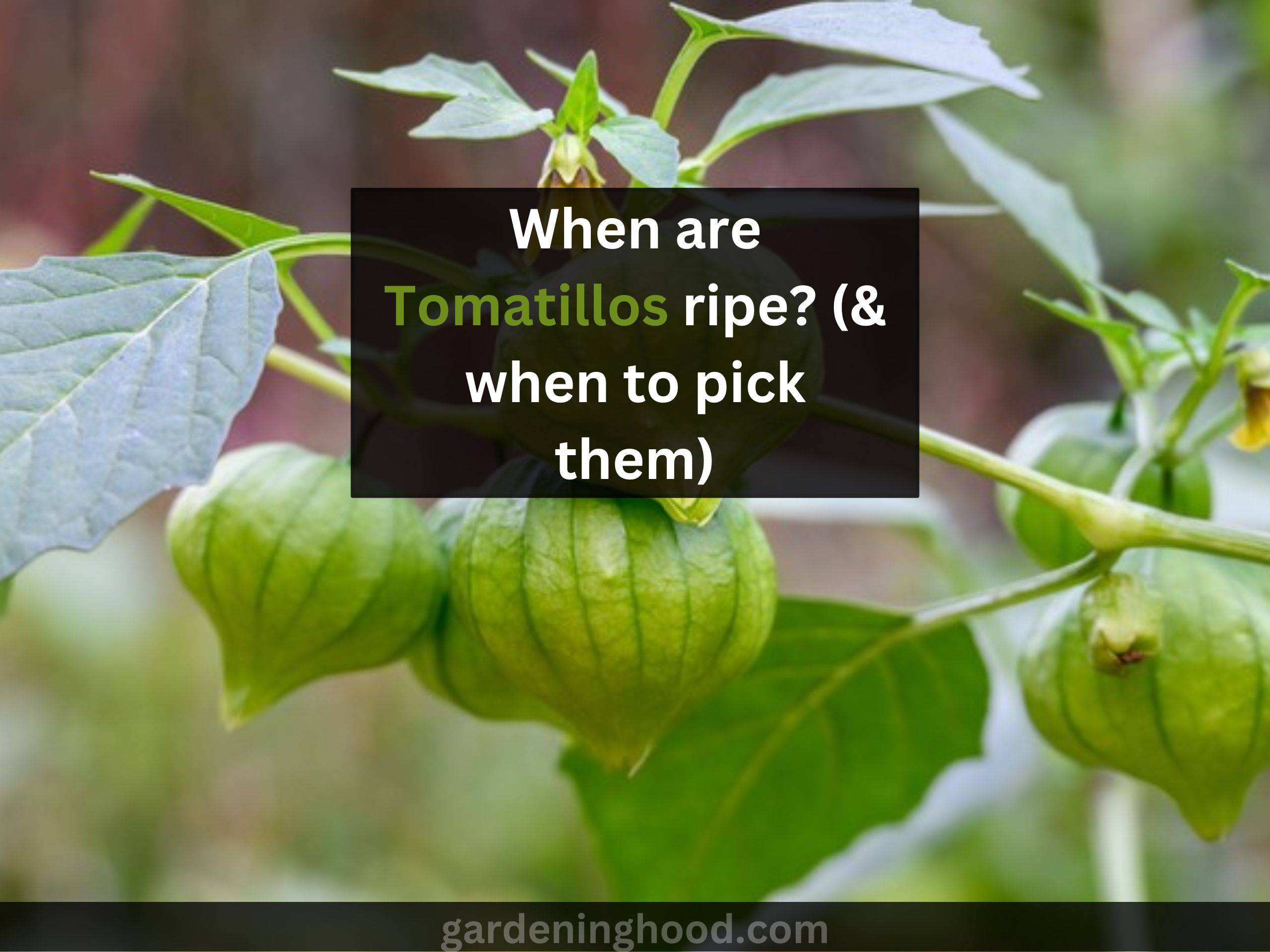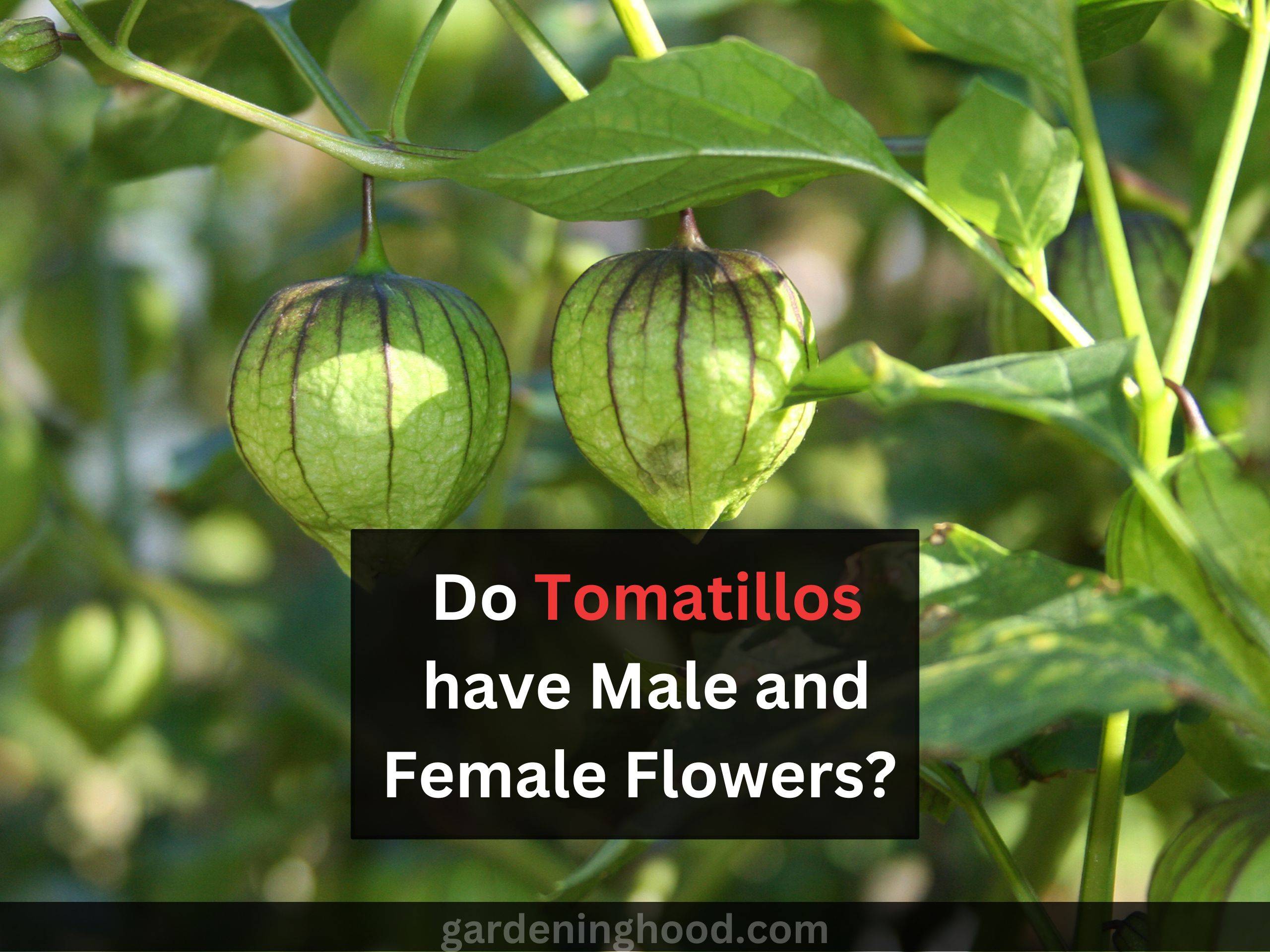10+ Best Tomatillo Companion Plants (What to grow and what not to grow with Tomatillo Plants?)
In this article, the reader can know about Tomatillo Companion Plants. tomatillos can thrive in most types of soil and they simply love full sun. The summer thus is the right time to grow tomatillos. But what if we plant them with companion plants? Tomatillo, native to Mexico and having such a unique flavor, is the perfect addition to the garden. T
Quick takeaways:
- Tomatillos are so easy to maintain and grow. The other name Mexican husk tomato of tomatillos suits them well just the way they look.
- The tomatillos are round, green to greenish-purple in color with a husky outer papery covering needed to keep them away from ants.
- The tomatillos can thrive in most types of soil and they simply love full sun. The summer thus is the right time to grow tomatillos.
- Companion planting is the process of planting plants together that help each other in growth or just the main plant without affecting the other plant.
- The growth and quality of fruit also increase in companion planting. But not all pants are good companions, some are bad companions.
But what if we plant them with companion plants? That would be great! So it is really important to know which plants are good companions and which are bad companions of a plant (tomatillo).
What plants to grow with tomatillo plants? – Best Tomatillo Companion Plants
1. Basil
As basil makes a yummy collab with tomatillos in various recipes. Just like that the basil is a great companion to tomatillos in the garden as well. Basil has a really strong aroma which is not liked by many pests like hornworms that love to eat tomatillos and plants.
The hornworms stay away from tomatillos when the basil plant is nearby. The basil plant also enhances the flavor of tomatillos, other than this they cover the barren soil near the tomatillos just to make sure that both are not planted too close to each other.
2. Cilantro
Cilantro, another great-smelling herb, does great to tomatillos plants as well when they are grown together. The cilantro repels the stubborn aphids from the tomatillos.
The cucumber beetles that many times attack the tomatillos plants also stay away from the presence of cilantro. The cilantro in return gets some shade from tomatillo plants as too much heat can affect the cilantro leaves. Some other companion plants that grow with cilantro are Basil, Potatoes, Okra, Coreopsis, Legumes, etc.
3. Carrots
Carrots make the soil loose, which will be beneficial for the roots to grow, and if the soil is too clayey growing carrots near the tomatillos will be beneficial as it will break up the soil.
4. Mint
The mint herb will keep the aphids, ants, and moths away from the tomatillo plants. There are many other companion plants that grow with mints like Brussels sprouts, Bell peppers, Tomatoes, Dahlias, etc.
5. Garlic
Garlic deters the aphids and other sap-sucking pests that would otherwise feed on the tomatillos plants or tomato plants.
The bulbs grow in soil like Canna bulbs in a shallow way which means the roots won’t interfere with the tomatillo plants and their root system.
Planting them close together won’t be a con for tomatillos plants. The strong smell of garlic also brings quality to the tomatillo’s yield.
6. Marigolds
Marigolds are great pollinators and bring some beneficial predators into the garden. Marigolds are great companion plants for most vegetables.
Beneficial predators like ladybugs, wasps, and hoverflies feed on aphids and many pests so controlling these pests is possible while marigold is neat to the tomatillos plants.
7. Yarrow
Again, the yarrow being such a beautiful flower and having foliage so attractive, the plant invites many pollinators and deters many pests away from the tomatillos plants.
A good space should be there between the two plants as both are tall plants and can cause shading.
8. Borage
The borage plants are deer-proof so not to worry about the deers anymore that could eat your juicy tomatillos.
The borage flowers bring many pollinators and keep the hornworms and caterpillars away from the tomatillo plants. Their leaves are great to be used in compost or can be placed in the soil for nutritional value.
9. Nasturtium
Nasturtium plants are companion plants to many of plants and provide benefits to them by keeping bugs away.
The flowers that are so attractive add a color pop to your garden and attract many pollinators as well will keep the whiteflies and beetles away from the tomatillos.
10. Onion
The onions are also bulbous and shallow-growing. They never interfere or invade the space of tomatillos. The pungent smell of onions also keeps the pests and bugs away from the plants by enhancing the flavor of tomatillos. Some companion plants grown with onion are Chamomile, Cabbage, Tomatoes, Swiss chard, etc.
11. Peas
Legumes like peas are a great option to grow near the vegetable or our main plant right now tomatoes. The nitrogen-fixing ability of the roots of the peas plants is a great way to add nitrogen to the soil which is needed by many plants.
The nitrogen-fixing bacteria in the roots do that. The small-sized bushy peas are the perfect option to grow near the tomatillos so that they get enough sunlight and don’t get blocked.
12. Hot peppers
The pepper as they are spicy keep many pests away due to their spiciness and help the tomatillos. Other than this, it is seen that when peppers are grown near the tomatillos, the root rot chances also go down which otherwise many times hit the tomatillo roots.
The plants should be given space so that the soil stays moist but not soggy.
13. Tomatoes
Tomatoes and tomatillos grow in almost similar conditions like soil, nutrients, etc. Growing tomatoes and tomatillos get easier then.
The pollinators are also seen visiting the garden and keeping the pests away from their flowers. Being so similar makes them good companion plants.
What not to companion with tomatillos?
1. Fennel
The fennel plants release the oil which usually inhibits the growth of the tomatillos plants. They compete with the tomatillos plant though keep many pests away from tomatillos.
2. Corn
Corn is a tall plant that can cause too much shade for the sun-loving tomatillo plants. Corn also attracts many aphids and pests which can be troublesome for your favorite tomatillos plants,
3. Potatoes
Potatoes bring the beetles which also feed on the tomatillo’s plants in a havoc manner. So, they should not be grown near the tomatillo plants.
4. Dill
Dill is the reason that it can inhibit the growth of tomatillos if grown together. Also, dill and tomatillos compete with each other which can make the tomatillo plants weak. Some companion plants that you can grow with dill are Cucumber, Lettuce, Basil, Asparagus, etc.
5. Brassicas
Kale, cabbage, kohlrabi, cauliflower, broccoli, etc plants are not good to grow near the tomatillo plants. These can inhibit the growth of the tomatillo plants and have similar pests which can become more dangerous for both plants.
Conclusion
Whether the herbs, vegetables, or pollinators do companion planting is fruitful and fun as well. You get the variety and still, the main plant grows healthily without much stress and fear of pests and aphids. Just you all need to know what to plant and what not to plant near that main plant. We have let you know in the best possible way we can. We hope you like our efforts. Happy companion planting!


